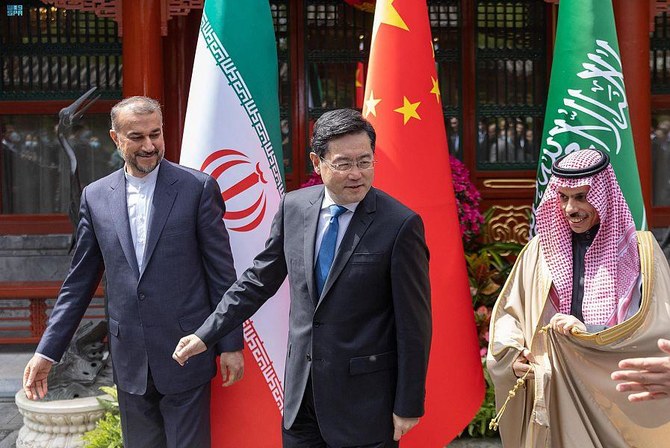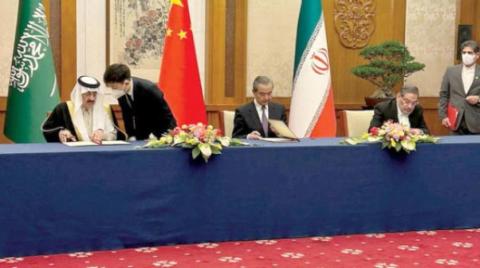
In a first, researchers identified dozens of social media accounts seeking to shape opinion in Central Asia and the Middle East
LONDON: Internet research revealed on Wednesday that Facebook, Instagram, Twitter and other social media platforms have blocked campaigns aimed at influencing opinion in Central Asia and the Middle East.
According to research carried out by Stanford Internet Observatory and the research company Graphika, it is the first time accounts promoting pro-US narratives have been discovered and shut down. The operation, which ran for five years, focused on discrediting Russia, China, Iran and other countries while promoting US views and values.
“It’s the first time we’ve seen something like this,” said Renée DiResta, research manager at the Stanford Internet Observatory. “It’s the first time we’ve seen a pro-US foreign influence operation taken down by Twitter and Meta.”
Researchers could not verify who was behind the pro-US accounts, though Facebook said that the account activity originated in the US, and Twitter said that it was from the US and the UK.
“Consistently across the campaigns we saw them advancing narratives in support of the US and allies, and particularly criticizing Russia, China and Iran,” said Jack Stubbs, Graphika’s vice president of intelligence.
Researchers identified dozens of fake campaigns, including 299,566 tweets sent by 146 accounts, between March 2012 and February 2022, which posted content in several languages including Russian, Arabic and Urdu.
DiResta compared the pro-US influence campaign’s techniques to those used by China, which seeks to promote a positive image of the country by highlighting “how amazing (it) was in comparison to the other countries”. This tactic is in contrast with the “Firehose of Falsehood” tactic frequently adopted by Russia-linked propaganda accounts, concerned with continuously broadcasting over multiple channels in order to sow divisions and discord in a given country.
In some cases, the accounts published news pieces from Washington-funded media groups such as Voice of America and Radio Free Europe, as well as links to US military websites.
Some of the campaigns, spreading predominantly from accounts aimed at Central Asian countries, also focused on sharing information about the Russia-Ukraine war. According to the report, several of them alleged that Moscow is carrying out “imperialistic wars” in Syria and Africa, accusing the Kremlin of pressuring Central Asian nations to fight for Russia while promoting local pro-Ukraine rallies.
As is the case with many of these accounts, the report found no evidence that the pro-US efforts were successful. The majority of these campaigns received little attention and had a very limited reach.
“Importantly, the data also shows the limitations of using inauthentic tactics to generate engagement and build influence online,” the report said.
“The vast majority of posts and tweets we reviewed received no more than a handful of likes and retweets, and only 19 percent of covert assets we identified had more than 1,000 followers.”












